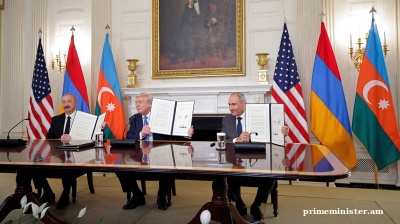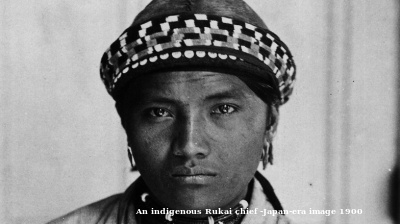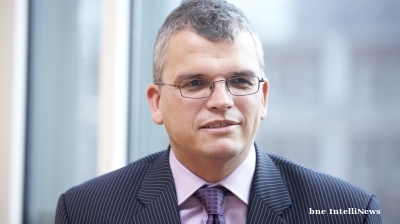On July 24, the Trump administration quietly granted a new sanctions waiver allowing US energy major Chevron to resume operations in Venezuela. The move took many by surprise, as the White House had just re-tightened oil sanctions to put pressure on the Nicolás Maduro regime. But it followed closely on the heels of a high-profile prisoner exchange involving 10 Americans, 250 Venezuelan migrants, and dozens of political detainees.
This time, unlike in previous rounds, the US Treasury’s Office of Foreign Assets Control (OFAC) issued a private licence – its terms not available to the public. Sources familiar with the matter say Chevron will pay Venezuela in crude rather than in cash. Yet this arrangement risks undermining the very policy objective it claims to support: limiting revenue flows to Maduro and his cronies.
Where did this licence come from?
Since February, Secretary of State Marco Rubio and his allies had been scrambling to eliminate every single sanctions exception – what we know as “OFAC licences” – related to Venezuela. While most were related to the production and export of crude oil, there were also authorisations for Shell and BP to develop new offshore gas fields split between Trinidad and Venezuela. And the last one to be axed did not even provide income for Maduro’s government: it merely allowed the country to import liquefied petroleum gas (LPG) – propane and butane – ostensibly on humanitarian grounds.
Then, in a marked shift, the US administration granted a new, private licence for Chevron to restart operations, barely two months after a public announcement that all oil-related activities would be wound down by May 27.
The timing was not coincidental. In the lead-up to the waiver, Washington and Caracas completed a sweeping prisoner swap. El Salvador sent home the 250 Venezuelan migrants, allegedly members of criminal gangs such as the Tren de Aragua, whom the US had deported to the infamous CECOT mega-prison, and the Maduro government released 5 US citizens, 5 green card holders, and dozens of political prisoners – significantly more than the 80 releases initially expected.
Since the start of the administration, Trump’s special envoy Richard Grenell had tried to strike deals with the Maduro government on precisely the same thing: prisoner swaps and oil licences. But he was repeatedly shut down by Rubio, a hardliner known for his visceral opposition to socialist regimes like Cuba and Venezuela. This time around, however, the Secretary of State not only allowed the deal to go through but is said to have participated in the negotiations in an official capacity
A Trump administration official, who did not wish to be named, says that Rubio has now lost his argument. “We’ve tried sanctions and pressure and achieved nothing. The opposition is not taking power anytime soon.” In the meantime, a different approach would focus on freeing Americans in Venezuela, and favouring US companies to do business in the country at the expense of China.
Indeed, under the current sanctions regime, Washington has handed Beijing a de facto monopsony, a buyer’s monopoly, on Venezuelan oil. Over the past two months, China has snapped up almost all of Venezuela’s oil exports, save for some token shipments to Cuba. The Asian superpower is also the top buyer, or in some cases the only one, for many of Venezuela’s strategic minerals like iron ore, cassiterite, and rare earths.
Why the oil licences matter, for Venezuela and for the US?
The way the Venezuelan state benefits from Chevron’s licence is not as clear-cut as many think. Let’s take a moment to consider how the authorisations – namely General License 41 and the later “specific licences” for Repsol, Maurel et Prom, and others – had functioned up until early this year.
The private oil company would produce crude in local joint ventures with state-owned oil company PDVSA, and then be assigned a certain amount to sell overseas, generating revenues. It would then have to pay taxes and royalties to the state. In very simplistic terms, the government and the private company would be splitting export profits 50-50. Otherwise, PDVSA would be exporting oil directly and cashing in 100%.
So why would the Venezuelan government want a Chevron licence? It may be a case of short-term pain for long-term gain. Foreign oil companies have historically been more efficient at boosting production than PDVSA, as long as they had licences. This is due to a mix of factors, including better management and having sanctions waivers. Thanks to the latter reason, international oil majors can also sell crude at more profitable prices, as opposed to sanctioned sellers which have to offer steep discounts and pay for higher freight and insurance costs. Under sanctions, Venezuelan crude barrels have seen discounts of as much as $35.
The extra revenues that foreign oil companies generate have an outsized effect on the Venezuelan economy: these sell hard currency into the local FX market to pay wages, suppliers, and taxes. By doing so, they create a lifeline not much for Maduro, but for many private businesses in dire need of US dollars. In short, they have a stabilising impact on the economy. For the US, this was also a desired outcome as it would bring more transparency, on top of benefiting the local private sector.
According to Ecoanalítica, a Venezuelan consulting firm, the three main foreign oil producers with OFAC licenses, Chevron, Repsol and Maruel et Prom, contributed 40% of the hard currency that was sold in the FX market in 2024, via private banks.
What does the new Chevron licence look like?
The “new” Chevron licence is officially a closely guarded secret, but many sources and experts are already discussing details emerging from leaks. The widely circulated version sees Chevron compensating the Maduro government with crude, instead of in the local bolivar, as discussed above. If confirmed, this deal would reflect incredibly simplistic thinking on the part of policymakers in the Trump administration.
PDVSA, while receiving crude as payment, would remain under sanctions. It would therefore be incentivised to continue selling to China through intermediaries and at steep discounts, as it is doing now, rather than allowing Chevron to ship that oil to American refineries. The current arrangement already benefits Beijing at Washington’s expense. Payments would be made in USDT – yes, the so-called stablecoin – or via flying suitcases of hard currency, destined straight for regime insiders and bypassing the broader economy altogether.
If this is the licence that ultimately emerges, it will only serve to entrench corruption, bolster Chinese access to cheap crude, and further weaken Venezuela’s struggling private sector, while denying US Gulf Coast refiners a reliable stream of heavy oil. And yet, the Secretary of State will still be able to claim, technically, that “Chevron is not paying US dollars to Maduro.”
That leaves a more fundamental question: what comes next? Is the Trump administration’s strategy simply to keep the pressure on indefinitely, hoping Maduro eventually relents, no matter how many years or decades that might take? Marco Rubio is surely familiar with the Cuban case study that bears his name. Or is there, at last, a plan to negotiate, one that accepts the need for difficult concessions on both sides?
For now, the licence looks more like a political fig leaf than a path towards resolution.
Elías Ferrer is the founder and director of Orinoco Research, a research firm based in Venezuela for foreign investors, and editor-in-chief of Guacamaya, a Caracas-based independent digital media outlet.
Opinion

Europe faces harsh realities in Ukraine as long war looms - Ash
Timothy Ash, senior sovereign strategist at BlueBay Asset Management in London, says European policymakers are belatedly waking up to the fact that the war in Ukraine is set to be prolonged — and that they alone may have to foot the bill.

COMMENT: US-brokered Armenia-Azerbaijan peace deal exposes Russia’s strategic failures
The recent peace breakthrough between Armenia and Azerbaijan is a major diplomatic win for the United States and a setback for Russia, according to a new report published by the Atlantic Council.

COMMENT: Why Beijing will never take Taiwan
Xi Jinping needs to think again before he sends so many young Chinese men and women to their deaths on Taiwan, for if the PLA does one day dare to land, they will be buried here.

COMMENT: Ukraine’s coming financial storm
“A crisis is drawing ever closer. It will break in Ukraine, but it won’t begin on the frontlines, where the country’s battle-weary brigades continue to impose a brutal cost on the Russian invader," writes Timothy Ash of BlueBay Asset Management.


_1758207765.jpg)

